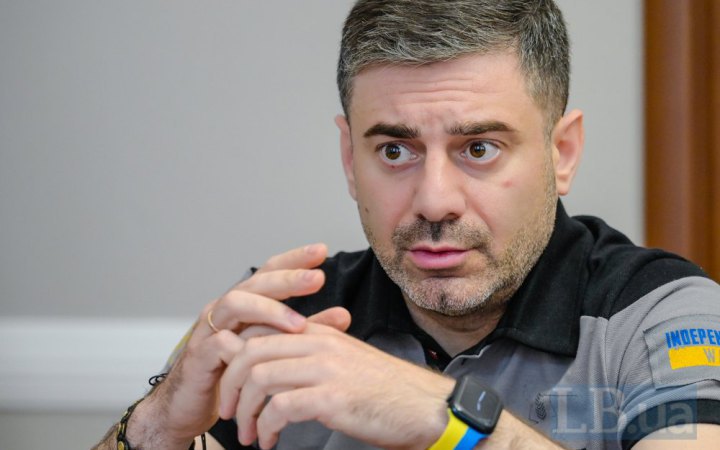The Ukrainian Parliament Commissioner for Human Rights Dmytro Lubinets has read the 41st periodic report of the Office of the United Nations High Commissioner for Human Rights and claims a number of unfounded conclusions about Ukraine.
The Ombudsman reported this on Telegram.
‘The report acknowledges Russia's systematic violations of human rights in Ukraine, including attacks on civilian infrastructure, executions and torture of Ukrainian prisoners of war, illegal confiscation of property in the TOT of Ukraine and the involvement of children in military training,’ Lubinets said.
However, according to the Ombudsman, a number of the UN's conclusions on Ukraine are erroneous. Also, certain observations and recommendations provided by the Ombudsperson's Office were not taken into account.
According to the Ombudsman, the UN report contains the main false statements:
Firstly, with regard to the cases of torture of Russian prisoners of war in transit, the Office of the Prosecutor General of Ukraine has launched a criminal investigation into the facts of torture in the transit point described in the report, and the Coordination Headquarters, the General Staff of the Armed Forces of Ukraine and the Ministry of Defence of Ukraine confirmed that the investigation is ongoing.
The comments provided by the Department for the Implementation of the National Preventive Mechanism were not taken into account in the report. The Ombudsperson's Office, together with representatives of civil society organisations, regularly visits POW camps and special detention centres. The conditions and treatment of Russian prisoners of war comply with the Geneva Convention.
Secondly, reports of torture and ill-treatment of Russian prisoners of war committed in transit after their evacuation from the battlefield require additional verification through the authorised state bodies of Ukraine.
‘In fact, the UN identifies the scale of violations by Ukraine and Russia. We all see how Ukrainians return from Russian captivity. They were subjected to torture, ill-treatment, psychological pressure, and did not receive proper medical care. Sometimes they return home with injuries that are incompatible with life,’ Lubinets said.
Ukraine has repeatedly noted that the coverage of the issue of ‘ill-treatment’ should reflect the extent of IHL violations by the Russian side, even in the absence of full access to places of detention in the Russian Federation. In fact, it seems that Ukraine grants access to international organisations that can cover everything in their reports, while Russia simply does not allow it. ‘These are not identical things!’ the Ombudsman emphasises.
‘I am outraged that in the current context, the final recommendations to Russia and Ukraine are to ‘comply with IHL’. That is, the UN is equalising the scale of violations, which is unacceptable,’ Lubinets adds.
Third, regarding the UN's conclusions on the ban on religious organisations in Ukraine.
‘The report states that amendments to the legislation relating to religious organisations have imposed disproportionate restrictions on the freedom to manifest one's religion or belief. According to the UN, there is concern about the possible ban on the activities of the Ukrainian Orthodox Church (UOC). It is also noted that the liquidation of a religious organisation is a severe restriction that affects the ability of people to manifest their religion or belief.’
The law directly prohibits the activities of the Russian Orthodox Church only. In addition, it prohibits the activities of Ukrainian religious organisations recognised as affiliated with the ROC, without providing for any mention in the law of the Ukrainian Orthodox Church.
The provisions of the law do not in any way restrict the right to freedom of conscience and religion, but are only aimed at regulating certain issues regarding the functioning of religious organisations, in particular, eliminating the dependence of Ukrainian churches on the ROC.
‘As the Ombudsman of Ukraine, I monitor the observance of the right to freedom of religion and belief. Every time my representatives respond in accordance with the law. As soon as a complaint is received, a monitoring visit takes place. For example, in October 2024, when violence occurred between parishioners of different Orthodox communities in Cherkasy, my Representative in Cherkasy Region arrived at the scene. On the same day, I sent a request to the Main Department of the National Police in Cherkasy Region to respond. I was informed that a criminal proceeding had been initiated on the basis of a criminal offence under Part 4 of Article 296 of the Criminal Code (hooliganism). The pre-trial investigation is currently ongoing, and the necessary investigative (search) actions are being carried out,’ the Ombudsman said.
According to the Ombudsman, some of the UN's conclusions about Ukraine remain unfounded. Lubinets sums up: ‘We cannot equate the aggressor with those who are defending their right to exist.’
‘I highly appreciate the report, which still refers to the facts of Russia's destruction of Ukrainian infrastructure, energy, torture of prisoners of war, etc. However, I disagree with some of the statements regarding Ukraine.’
The Ombudsman sent letters to the Office of the UN High Commissioner for Human Rights to initiate a new meeting with the Head of the UN Human Rights Monitoring Mission in Ukraine, Danielle Belle.
‘I will insist that the recommendations of the Ombudsman's Office are taken into account in the next reports,’ Lubinets adds.








